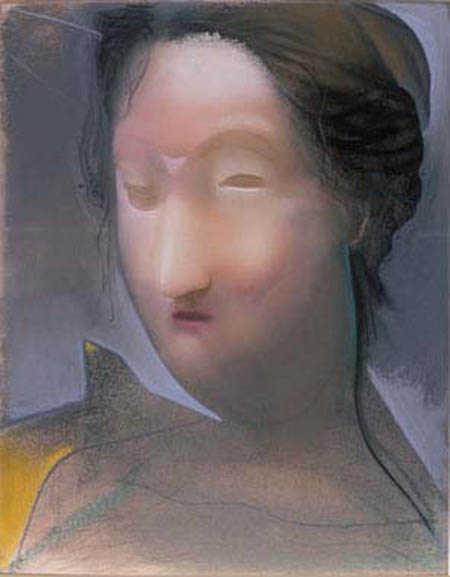Pietro Roccasalva
dal 16/3/2006 al 21/4/2006
Segnalato da
16/3/2006
Pietro Roccasalva
Johnen + Schottle, Koln
The show comprises paintings that are of essential meaning for the artist's work and as it is characteristic to his work all components of it refer to each other conceptually as well as they are individually integrated in a dramaturgy of spatial installations.

The storm
La Tempesta is Italian artist Pietro Roccasalva's first solo exhibition in Germany. It comprises several paintings that are of essential meaning for the artist's work and as it is characteristic to his work all components of the exhibition refer to each other conceptually as well as they are individually integrated in a dramaturgy of spatial installations.
La Tempesta starts with a large sculpture outlining with neon light a form that corresponds to the course of a tracking shot shown in the videowork Giocondita'. As lightning the neon sculpture is released from a small painting of a medieval architecture. The painting of this cabinet-like structure refers to the idea of contemplating the world for researching its fundamental mechanics. In contrary however to awaiting godly inspiration the expansive neon tube exceeds hermetic contemplation and thus lights the surrounding space (the real one instead of the ideal one) by its own energy. A small owl, symbol of wisdom, steps from the painting's sill in disguise of a parrot that is ready to conquer the world in the name of enlightenment.
The videowork Giocondita' visualises the digitally animated modell of a church shown from dawn till dusk and based on the architecture of the former San Francesco church in Como. According to its today's profane designation as a visual arts academy the modell is situated in the desert and its dignity is thwarted by a rotating citrus-squeezer forming the dome. It symbolizes the self-consumption of the sun and its energy being preserved in citrus fruits while the storm of pigments caused by the loss of the classical canon leads to a woman's portrait that is done in a heterogenous manner witnessing the artist's never ending urge to definitely finish a work, an urge whose assumed fulfillment is necessarily causing the start of another try. And correspondingly this painting is of central referential meaning to the artist's creative evolution.
Meanwhile the exhibition's discourse leads to the final state of entropy that is represented by a monochrome painting entitled D'apre's La Tempesta and displayed together with a minimalistic monument. Just like the inevitable monument on a Italian piazza a pile of paper functions as plinthe for a huge arancino. The arancino (tiny orange), normaly made for being consumed as a snack at the bar, again is a symbol of the sun, now after having burned itself for donating its energy to the universe while the white paper with its surrounding black line is inspired by both Ellsworth Kelly's extremely reduced painting „White Square“ as well as by obituaries displayed on the facades of Italian city squares.
It is the After the painting D'apre's La Tempesta is referring to since it is containing in one all colours used in Giorgione's mysterious painting „La Tempesta“. While here all action comes to an end it will be the visitor who becomes active. Just like in old master paintings the holy creation of the world is visualized and thus tried to be made capable for the human's mind today's travellers are posing next to the local monument in order to grasp the structural laws of the world. Parallely the visitor will pose and be photographed next to White Square in order to possibly become a means of inspiration for exceeding the temporary termination of the artistic act of creation by resuming the course of questing for ultimate knowledge.
Opening: Venerdi' 17 Marzo 2006, from 3 to 6 pm
Johnen + Schottle Gallery
Maria-Hilf-Strasse 17 - Koln
Hours: Maria-Hilf-Strasse 17



